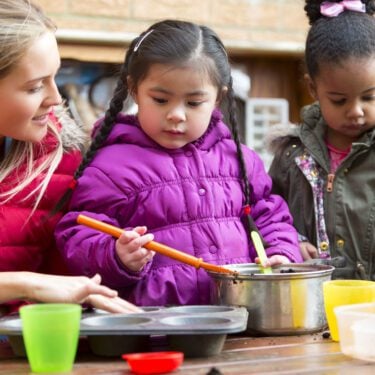
02/09/21
4 min read
New research from the National Foundation for Educational Research (NFER) on the ongoing impact of COVID-19 on schools serving predominantly deprived populations, shows how schools are adapting their curriculum to help pupils’ learning recovery. It also finds that pupils moving between Early Years, Reception and Year 1 are less emotionally and academically ready to make the transition, compared to previous years, and that many pupils moving from primary to secondary school are emotionally underprepared.
The report, funded by the Nuffield Foundation, expands on NFER’s interim policy briefing published in July. It provides more detailed information on a decline in pupils’ well-being and mental health, especially increased anxiety, as a result of the pandemic, and highlights senior school leaders’ calls for urgent increases in government funding for specialist mental health and social care services to support pupils’ well-being.
This new report provides further insights into schools’ support for the recovery of learning and wellbeing once pupils returned to school full-time from March 2021. It also highlights their challenges and support needs. It is based on in-depth interviews with senior leaders in 50 mainstream primary and secondary schools across England, predominantly serving deprived populations. Previous NFER work and other evidence show that these schools and pupils have been most seriously affected by the pandemic.
Key findings from the report (not explored in the July policy briefing) include:
- Most senior leaders said that their schools had modified the curriculum to help pupils recover and make progress with their learning. The research identified four models: narrow (prioritising literacy and numeracy over other subjects such as arts and languages); focused (prioritising core content within subjects); blended (supporting numeracy and literacy through other subjects); and continuous (covering planned content over a longer period of time). Schools adopting the narrow model had done so because of the perceived pressure of external accountability.
- There were particular worries about children moving into Nursery, Reception and Year 1 in 2021/22 because the pandemic has affected such a large proportion of their lives. Some school leaders were concerned about the emotional readiness of pupils moving from primary to secondary school, and the academic readiness of pupils in Years 11-13 to progress to the next stage. These concerns were exacerbated by disruption to normal transition events.
Other findings of note include:
- Most school leaders reported more pupil wellbeing and mental health problems than usual, especially increased anxiety, as a result of the pandemic. A substantial minority – mainly, but not exclusively, secondary leaders – noted an increase in severe mental health issues, including self-harm. Many of those affected had been identified as vulnerable before the pandemic, but leaders were also concerned about pupils with no known vulnerability or previous mental health issues. More primary pupils than usual were reported to be struggling with social skills, confidence and self-esteem. There were also concerns about a deterioration in their skills for learning, such as concentration, memory and stamina.
- Schools were finding it very difficult to secure specialist external support. School leaders responded by increasing their own pastoral support and wellbeing activities, including working with other organisations. Some had arranged mental health training and appointed specialist staff, but others were constrained by a lack of funds, capacity and expertise. Leaders called for early intervention and a multi-agency approach to reduce an escalation in poor mental health and learning incapacity, to support families, and to minimise staff workload and stress.
Recommendations
- Recovery measures should balance support for well-being and academic ‘catch up’. The Government needs to provide adequate, sustained funding for recovery in future, and enable senior leaders sufficient flexibility to provide targeted support for wellbeing and enrichment as well as academic ‘catch up’. This will enable schools to support pupils appropriately, according to their needs, especially those at key transition points.
- A range of urgent measures are needed to tackle widening educational inequality. There is growing evidence that the pandemic has increased inequality. Measures needed to address this include:
- a systematic digital access plan (especially as more schools move homework, revision and feedback online). In the medium term, there is a need for government and schools to continue providing devices and connectivity to pupils who have no remote access. The Government also needs to find a longer-term solution to the digital divide.
- a renewed focus on supporting vulnerable children and young people, including those with special educational needs and disabilities (SEND).
- recognition within the accountability system (especially National Curriculum Assessments and Ofsted inspections) that schools’ experiences, and those of their pupils, have been unevenly impacted by the pandemic and that the effects are likely to be felt for a number of years. In addition, allowance should be made within the 2022 exam series (and consideration of this in future years) in recognition of the fact that while the vast majority of pupils have missed classroom learning, some pupils have missed more than others.
- Immediate increased funding to address pupils’ well-being and mental health – both for schools and for specialist services, such as Child and Adolescent Mental Health Services (CAMHS). Schools should continue to monitor and support pupils’ wellbeing in the coming months and years, including during the transition back to more normal school operations from September 2021.
- Schools will need to prepare for the potential return of COVID protective measures and/or periods of remote learning. Although the intention is that schools will resume normal operations from September, this will become necessary if there are increases in rates of within-school transmission, or new COVID-19 variants. The DfE has issued guidance to schools on how to determine whether protective measures may be needed, by recommending thresholds and courses of action. However, the guidance places decision-making in the hands of schools and local public health teams. It may be that more centralised directives are needed if there is a surge in within-school transmission. The DfE should also have a ‘Plan B’ in place for examinations in 2022, outlining how pupils will be assessed if exams have to be cancelled.
Caroline Sharp, Research Director at NFER, and co-author of the report said:
“Our report shows the continuing impact of the pandemic on mainstream schools serving deprived communities, and its adverse effect on pupils’ wellbeing, learning and transition across all age groups.
“Schools are doing all they can to support their pupils, whose education and welfare has been so severely disrupted by COVID-19. Most are modifying the curriculum to help pupils recover missed learning, and simultaneously make progress. More research is needed to understand the implications of the various curriculum modification models identified in this research.”
Ruth Maisey, Education Programme Head at the Nuffield Foundation said:
“This NFER research reveals that most school leaders report a deterioration in pupils’ well-being, especially increased anxiety, as a result of the pandemic. And that without early intervention, there is a risk these difficulties will escalate, potentially leading to more severe mental health issues and affecting pupils’ learning in the longer term. The research also finds that headteachers are having difficulty trying to secure the external, professional support needed to help pupils with the challenges they face, highlighting the need for recovery measures to support children’s well-being as well as academic ‘catch up’.”


















































